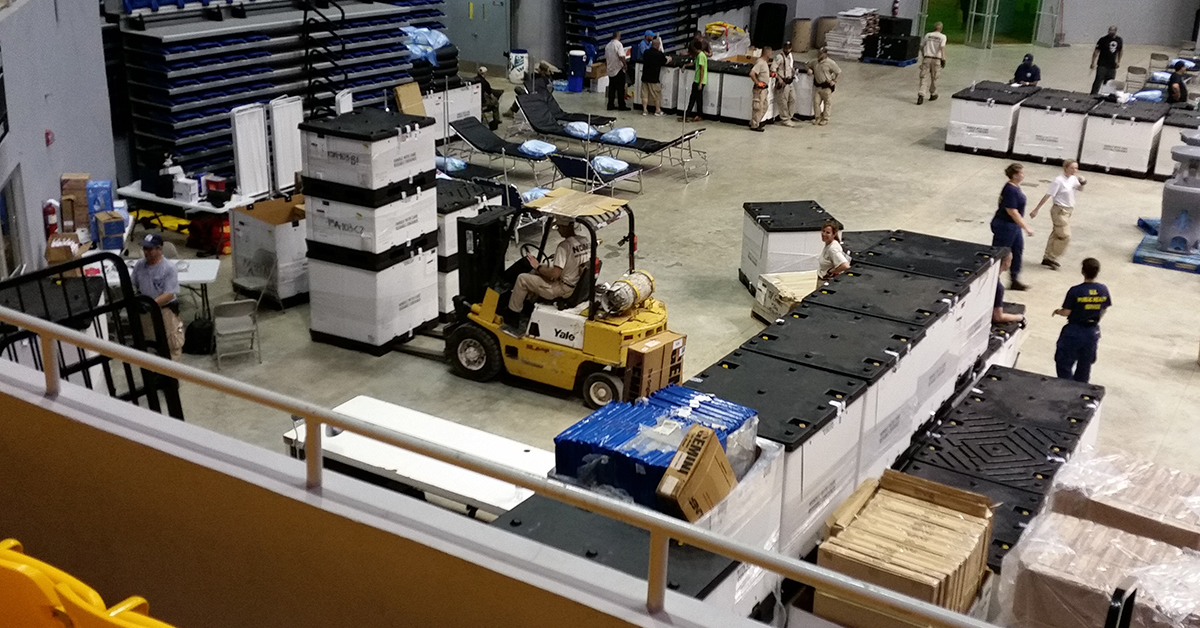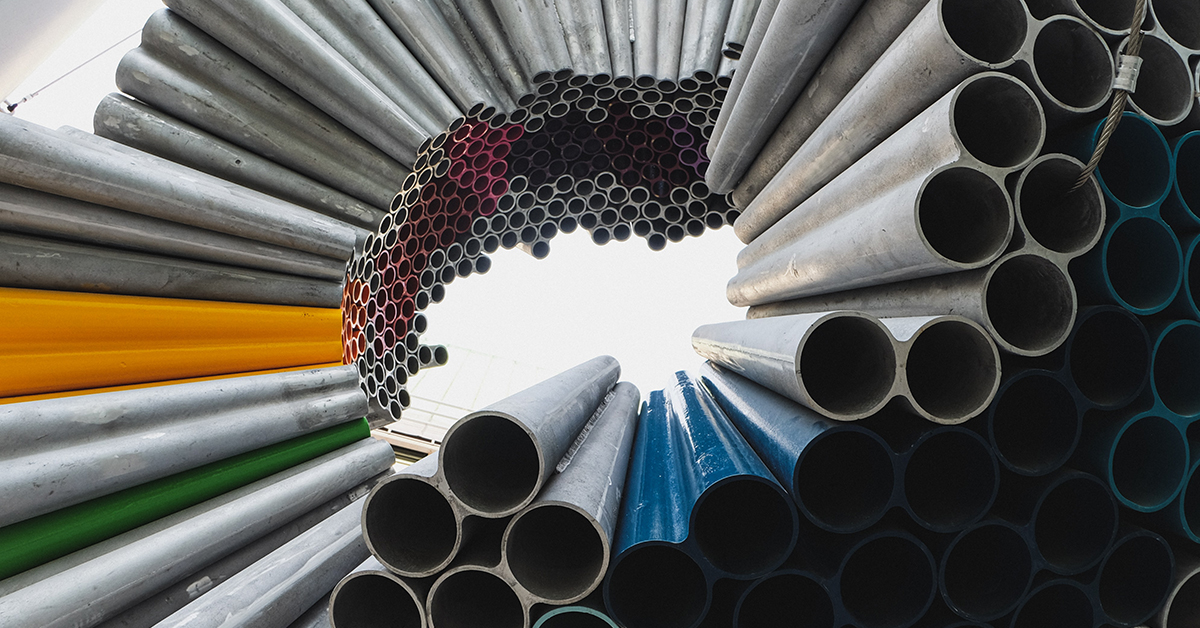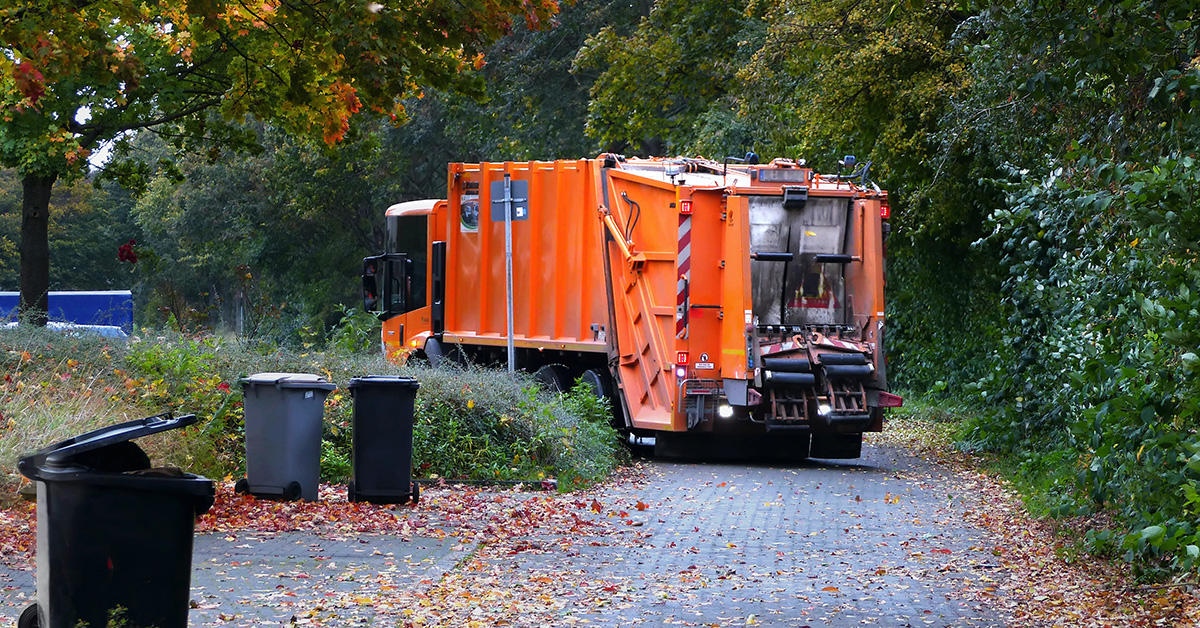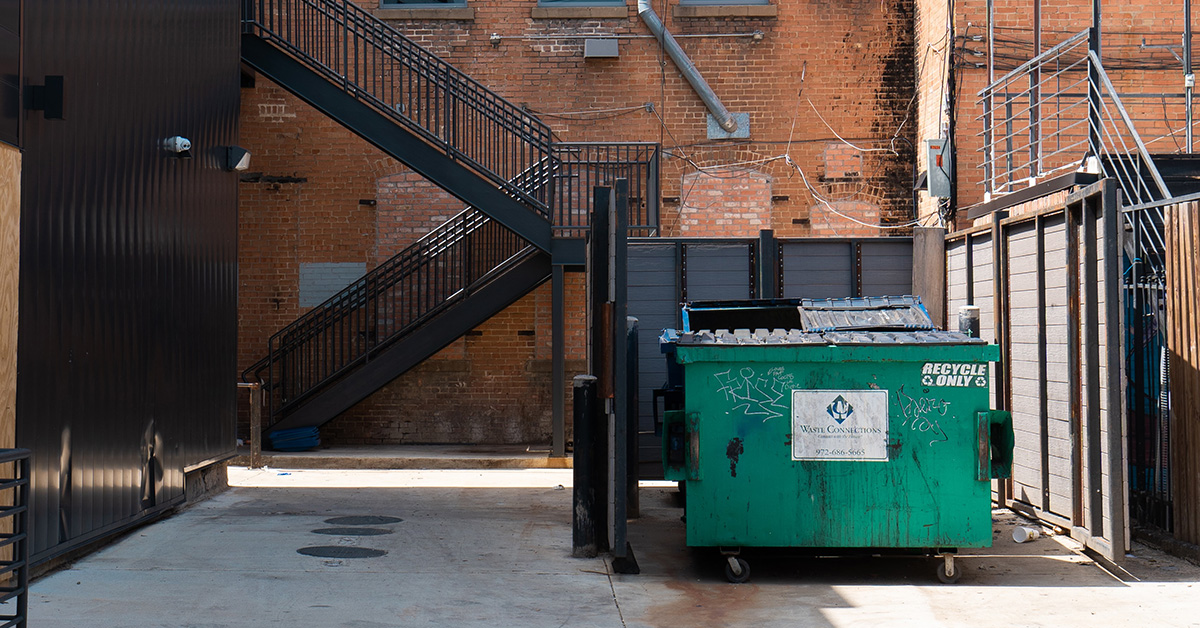by KenBay | Aug 22, 2022

What Is the Internet of Things (IoT)?
The Internet of Things (IoT) describes the network of physical objects that are embedded with sensors, software, and other technologies for the purpose of connecting and exchanging data with other devices and systems.
(more…)
by KenBay | Jul 25, 2022

What Size Compactor Do You Need for Your Trash?
Every manufacturing facility generating industrial waste has to consider the most cost-efficient size of waste compaction equipment necessary to meet their individualized needs. The investment in the industry trash compactor necessary to minimize cost in proper trash removal is pertinent when planning for any facility, large or small.
(more…)
by KenBay | Jun 27, 2022

For those who work in the pharmaceutical, biochemical, or food wholesale industries, cleanliness is paramount. This is especially true for industrial waste disposal.
When it comes to managing industrial waste, choosing a trash compactor made of easy-to-clean and bacteria-resistant stainless steel is an excellent choice for crushing and disposing of large quantities of waste materials that may have contaminants. Stainless steel trash compactors are easier to wash, have protected electrical mechanisms, and are extremely durable for both indoor and outdoor waste compaction.
(more…)
by KenBay | May 24, 2022

Municipal landfills have been a growing concern throughout the United States for decades. Costs for these subterranean garbage heaps are rising rapidly, fueled by the 292.4 million tons of municipal solid waste (MSW) the U.S. produces each year according to the Environmental Protection Agency (EPA)
It’s a constant struggle to allocate the necessary amount of land, money, and technology for landfills, especially in North America in the 21st century.
(more…)
by KenBay | Apr 25, 2022

As zero-waste initiatives, recycling goals and overall industry-specific industrial waste concerns are being assessed in a tighter and tighter global market, companies have a lot more pressure to make the purchases for industrial waste disposal that will benefit their bottom line. One of the most pressing concerns in this area at manufacturing facilities is whether to invest in a baler or an industrial trash compactor to streamline their waste removal needs.
(more…)
by KenBay | Mar 22, 2022

Did you know that the U.S. produces as much as 7.6 billion tons of industrial waste every year? Of course, all of those waste materials need somewhere to go. Most of it ends up in Class 3 municipal solid waste landfills. As of 2018, there were approximately 1,269 in the continental United States, all managed by the states where they are located. (more…)
by KenBay | Feb 25, 2022

Many businesses face an increasing amount of packaging and production waste. It can be a challenge to reduce all of this to reasonable levels. An industrial compactor is a smart solution to help manage the surge of waste products.
Different industrial compactors come with an array of features to tackle varying needs. There are many factors involved in choosing the best industrial waste compactor to meet various industry requirements.
Here’s what you should know about choosing a compactor for your industry.
(more…)
by KenBay | Jan 25, 2022

The issue of industrial waste disposal should be an important issue for all of us. After all, improperly disposed of industrial waste can result in hazardous conditions for humans while raising large environmental concerns in regards to both landfill waste management and marine acidification.
Why is it so important? Because it’s a large issue. According to the Environmental Protection Agency’s Guide for Industrial Waste Management, approximately 7.6 million tons of industrial waste are generated and disposed of.
Currently, using landfills for waste materials is still the most widespread and least expensive method of industrial solid waste disposal in the world. However, it is also a major source of ecological contamination.
Modern landfills have been designed as highly engineered containment systems, designed and developed to minimize the impact of solid waste on the environment and ultimately on human health. That said, they are as of yet incapable of providing a permanent 100% ecological solution. (more…)
by KenBay | Dec 17, 2021

Avoid Downtime with Your Industrial Compactor
Every industry needs proper commercial waste disposal systems. One vital piece of equipment for proper waste management is an industrial trash compactor. These marvelous machines compress waste into smaller, easy-to-manage trash compactor bags. To keep your industrial trash compactor running at tip-top shape, routine maintenance is necessary.
Proper trash compactor maintenance is a win-win situation for any facility/warehouse/manufacturing center—where time, money, and safety are at a premium. KenBay produces one of the best commercial trash compactors on the market, and an adequately maintained trash compactor maintenance program will keep the compactor running like new for years.
If a facility is hoping to avoid extended downtime periods due to replacement part procurement or for repair time, a weekly or monthly maintenance program is beneficial. Periodic maintenance is also essential in extending the lifetime of any waste compactor. When facilities perform planned maintenance during non-production hours, the benefits are apparent.
(more…)
by KenBay | Nov 17, 2021

There are a number of determining factors involved when considering upgrading to an industrial trash compactor/commercial waste disposal system. A thorough analysis of your company’s present commercial waste disposal costs will provide the necessary criteria as to the correct time to consider purchasing industrial compaction equipment. Below are a series of questions that provide a starting framework when considering how trash compactor waste removal could benefit your facility:
- Does your company have planned growth that will create more trash?
- What is being spent on commercial waste disposal?
- How high are the monthly person hours spent on collecting waste and removing it from the facility?
- Are cardboard boxes being broken down to save space?
- Are forklifts used for collection and removal of trash? What is their cost? Do they present safety issues?
- Is any of the trash material recyclable? How much?
- Is the company in compliance regarding hazardous material disposal?
- How much of the waste is wet material that may cause odors?
(more…)












